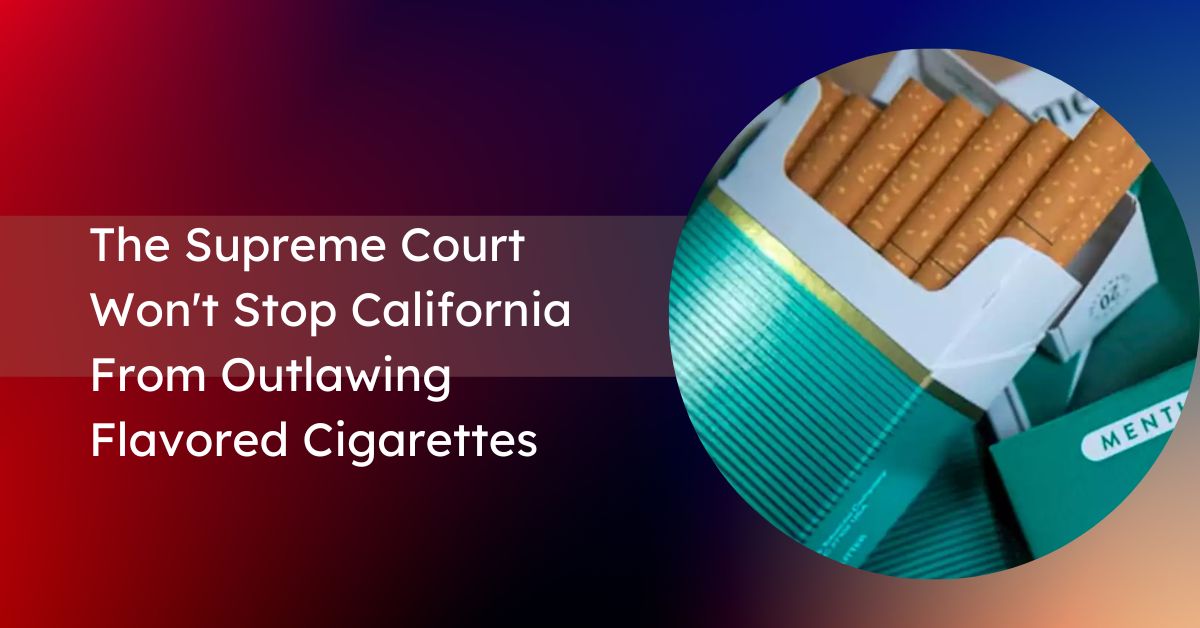R.J. Reynolds, a tobacco corporation, submitted a petition to the Supreme Court on Monday asking to challenge a California law prohibiting the sale of flavored cigarettes. The court turned down the request. There were no dissenting voices that came to light.
The company, which manufactures menthol cigarettes, argued that the state law conflicts with a federal law known as the Tobacco Control Act. This act grants the authority to regulate the sale of cigarettes to the federal Food and Drug Administration. The company argued that the state law is more restrictive than the act.
The ban is scheduled to go into effect on December 21, and the tobacco company has stated that if the Supreme Court does not step in, it will be prevented from selling its menthol cigarettes, which account for approximately one-third of the market for cigarettes, in one of the largest markets in the country.
Voters in the state of California went to the polls in November and gave the ballot proposal a majority yes vote of 63.5% to 36.5%. Under the new legislation, known as SB 793, it is against the law to “sell, offer for sale, or possess with the intent to sell or offer for sale, a flavored tobacco product or a tobacco product flavor enhancer.” [citation needed]

R.J. Reynolds’ legal team contended that a lower court erred when it “ignored” federal law and allowed states to “totally prohibit” the sale of flavored tobacco products because they did not satisfy “tobacco product requirements.”
They made a note of the fact that in 2009, Congress “enacted a comprehensive regime” to distribute authority over the regulation of tobacco products among the FDA, and state and local governments, and that the law granted the FDA “primary authority” to regulate tobacco products. In addition, they mentioned that the FDA was given the authority to regulate tobacco products.
In legal documents, the state of California argued that for more than a century, states have “carried out their authority” to “protect the health” of their residents. As a result, the state believes that the Supreme Court should avoid becoming involved in the debate. Attorney General Rob Bonta of California stated that the statute in question was required because “flavored tobacco products are the fundamental source of bad trends in child addiction to tobacco.”
He mentioned that the tobacco industry spent “tens of millions of dollars” trying to convince voters to reject California’s ban on smoking in public places, but they were unsuccessful in doing so. In addition to this, he stated that when the Tobacco Control Act was passed into law by Congress in 2009, it “preserved the pre-existing jurisdiction” of the states in regard to the sale of tobacco products.
After the judgment, Bonta issued a statement praising the Supreme Court for “denying Big Tobacco’s latest attempt to overturn California’s commonsense prohibition on flavored tobacco products.” He continued by saying, “The people of California approved this prohibition by an overwhelming margin in the election that took place in November, and now it will finally go into force.” I eagerly anticipate the opportunity to continue to defend this vital statute against any other judicial challenges.
Keep checking back on our homepage for additional information, Journalistpr.com.

Leave a Reply